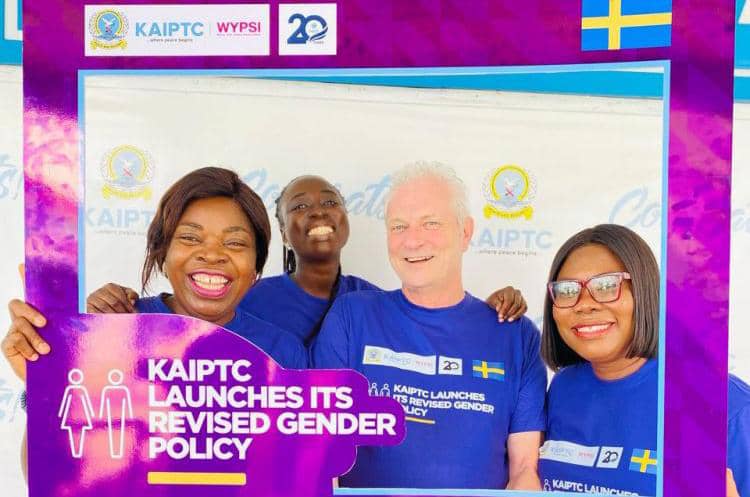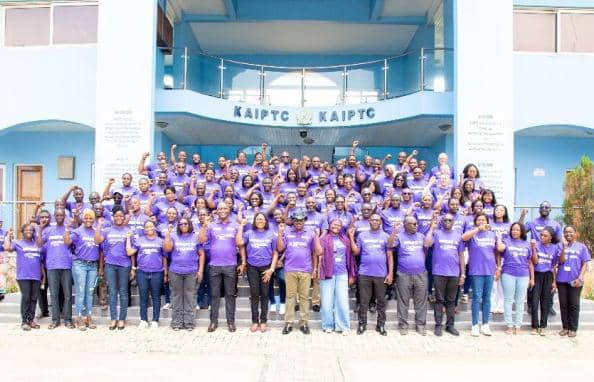Nii Martey M. Botchway
Accra, March 14, GNA – The Kofi Annan International Peacekeeping Training Centre (KAIPTC) has launched a revised gender policy to strengthen equality and inclusion within the organisation.
The move which forms part of the Centre’s commitment to promoting gender equality, is a core focus of its Strategic Objectives Plan for 2024-2028.
Launching the document, Major General (Gen) Richard Addo Gyane, Commandant of the KAIPTC, said the policy integrates gender considerations across all strategic objectives, with a strong emphasis on empowering women and the youth to drive peace, stability, and development.
“Gender equality is not just a policy; it is a commitment, a responsibility, and a necessity for sustainable progress,” he said.
The Commandant said, KAIPTC was embedding gender mainstreaming across it training, research, and operational frameworks to ensure lasting change, underscoring the urgency of moving beyond discussions to tangible implementation.
Major Gen Gyane highlighted the impact of the initial policy which was launched a decade ago, adding that, it had influenced the Centre’s operations, and shaped its programmes for promoting gender equality in peacekeeping and security governance.
“The review of our policy has given us a clearer understanding of our successes and areas that need further attention,” he said.
“This revised agenda is a direct response to our commitment to continuous improvement and closing existing gender gaps,” he added.

The policy which aligns with the global theme for International Women’s Day 2025, “Accelerate for Action,” calls for accelerated action to achieve gender equality and women’s empowerment.
To support the implementation of the revised policy, the KAIPTC has appointed and trained Gender Focal Persons (GFPs) across departments to integrate gender perspectives into their respective roles. The GFPs are critical actors in the implementation of the Centre’s gender mainstreaming agenda.
The revision which began in 2024, is sponsored by the Government of Sweden through the Swedish International Development Cooperation Agency (SIDA).

GNA